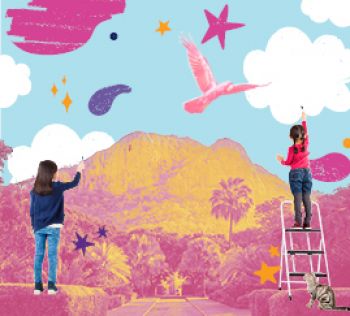Litter sorting identifies waste being washed down the drain
Date published: 6 August 2020
Stormwater litter baskets across the CBD are being emptied and sorted this week to collect data about what items are most likely to make it into the city’s waterways.
The traps were installed by Townsville City Council in a joint venture with the Townsville Local Marine Advisory Committee and Tangaroa Blue Foundation and funded by the Great Barrier Reef Foundation to stop litter before it reaches the ocean.
Townsville City Council joined the Reef Guardian Council program, a Great Barrier Reef Marine Park Authority initiative, in 2007, and the TLMAC was created to provide community advice to the Great Barrier Reef Marine Park Authority.
Townsville Water and Waste Committee chairperson Russ Cook said the collaborative project is a great example of organisations working together to benefit the city.
“Townsville is incredibly lucky to be on the Great Barrier Reef and surrounded by these beautiful natural environments and it’s so important that organisations work together to protect it and keep it pristine,” Cr Cook said.
“This sorting event is a chance to both service the litter baskets that were installed in May and to collect valuable data about what the most littered items in the CBD are and what we can do as a community to prevent it from happening again.”
Tangaroa Blue Foundation CEO Heidi Tait said that it was wonderful to connect Townsville’s stormwater drain trap project with the reef-wide ReefClean program to continue to build the most comprehensive dataset on litter and marine debris data impacting the Great Barrier Reef as possible.
“Data from stormwater drains are vital in being able to pinpoint the actual input points of litter that we find washed up on our beaches and islands, creating opportunities to develop strategic source reduction plans that stop the flow of litter at the source,” Ms Tait said.
Townsville Local Marine Advisory Committee Chair (TLMAC) Vern Veitch said that no litter at all is preferable but stopping litter from making it into the water is crucial for the health of the environment.
“Educating the community on how to dispose of litter responsibly is always the best option, but when there is litter, stopping it getting into our waterways and ocean is critical to their health,” Mr Veitch said.
Great Barrier Reef Foundation Managing Director Anna Marsden said the Great Barrier Reef is Australia’s unique living icon, and as Australians we should be proud that it’s our responsibility to look after it.
“The task of saving the Reef can appear enormous, but the cumulative difference that will come out of local action projects like this one will have real impact on the Great Barrier Reef,” Ms Marsden said.





